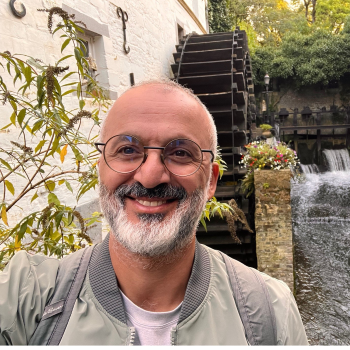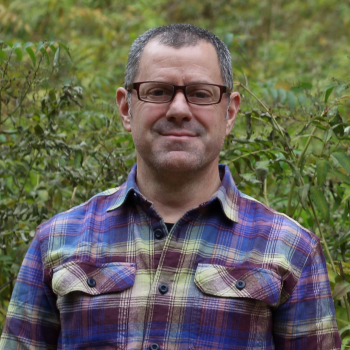Broadcast Date: November 7, 2024 | 1:00pm - 2:30pm Central
View On-Demand Webinar
Webinar Summary
Microbe collections are on the front lines of plant pathology investigations. They are not easily located, and access is challenging. This session aims to explore the establishment, regulation, and research of microbe collections that are historic, non-endemic, or quarantined. Plant and microbe collections are the backbone of sustainable research into pathogen and plant evolution, disease resistance, epidemiology, taxonomy, and global plant health. These collections are an important reference when exploring and quantifying the impacts of global climate change and pathogen evolution on plant health.
An important regulatory network has been established that often makes working with historic, non-endemic, or quarantined pathogens challenging without prior approval. This regulatory network is an important aspect of safely and ethically researching the impacts of microbes on plant health. Recently USDA-APHIS has changed its permitting processes. This is relevant to all scientists looking to work with plant pathogens that were not originally isolated in the state in which they work or historic isolates from their state.
Given the added regulatory framework, we would like to highlight some research programs that are actively utilizing collections that are impacted by government oversight to:
- ensure researchers know of applicable regulations
- foster collaboration between researchers interested in working with historic, non-endemic, or quarantined microbe collections and those who maintain these collections
- provide insights on how to effectively and safely maintain historic, non-endemic, or quarantined microbe collections
By bringing awareness to these collections and the regulatory framework surrounding them, we hope to advance plant health science by promoting collaborative research opportunities with these diverse collections and promoting safe, sustainable research that leads to effective management of plant-microbe collections towards the facilitation of global plant health.
Learning Objectives
- Attendees will learn about potential collaborative opportunities with labs currently working with historic, non-endemic, or quarantined microbe collections subject to additional governmental regulation.
- Attendees will learn about microbe conservation and preservation practices.
- The target audience of this special session includes any scientist who:
- Wants to work with non-endemic, historic, or quarantined pathogen collections and/or needs to update their permits to do so.
- Wants to learn about collaboration opportunities for working with exotic or historic plant pathogen collections.
- Is interested in monitoring pathogen or virulence distribution.
Presenters
Moderator
Jason Zurn
Speakers
 Dr. Yilmaz Balci is the assistant director for the Plants for Planting Policy program in USDA-APHIS Plant Protection and Quarantine. His team of 12 develops science-based import policies for all propagative plant material imported into the United States. He has developed new import policies and systems approaches to challenging qurantine pests with a global impact and developed streamlined practices to enable US stakeholders to have access to new germplasm to increase US competitiveness in global market. Prior joining APHIS, Dr. Balci spent 15 years in academia at West Virginia University and at the University of Maryland where he built a plant health program. His research portfolio focused on management of exotic diseases in forest, urban and nursery ecosystems. He is known for his work on the infamous plant killer, Phytophthora, and described several new species and published extensively in peer-reviewed journals. Dr. Balci’s formal education includes a PhD in Plant Pathology, a MSc in Botany and Mycology and a BSc in Forest Engineering.
Dr. Yilmaz Balci is the assistant director for the Plants for Planting Policy program in USDA-APHIS Plant Protection and Quarantine. His team of 12 develops science-based import policies for all propagative plant material imported into the United States. He has developed new import policies and systems approaches to challenging qurantine pests with a global impact and developed streamlined practices to enable US stakeholders to have access to new germplasm to increase US competitiveness in global market. Prior joining APHIS, Dr. Balci spent 15 years in academia at West Virginia University and at the University of Maryland where he built a plant health program. His research portfolio focused on management of exotic diseases in forest, urban and nursery ecosystems. He is known for his work on the infamous plant killer, Phytophthora, and described several new species and published extensively in peer-reviewed journals. Dr. Balci’s formal education includes a PhD in Plant Pathology, a MSc in Botany and Mycology and a BSc in Forest Engineering.
 Dr. Pablo Olivera Firpo is a Research Associate Professor in the Department of Plant Pathology at the University of Minnesota. Originally from Montevideo, Uruguay, he earned his BS in Agronomy from the University of the Republic in 1997. In 2002, he relocated to Minnesota, where he completed his Ph.D. in Plant Pathology at the University of Minnesota in 2008. After a postdoctoral research appointment, he joined the faculty as a Research Assistant Professor in 2007. Dr. Olivera's research focuses on two primary areas: enhancing and diversifying genetic resistance to stem rust in both durum and bread wheat, and monitoring the emergence, spread, and evolution of new strains of the stem rust pathogen, Puccinia graminis f. sp. tritici, with virulence against effective and widely used resistance genes. His work aims to identify, characterize, and genetically map new stem rust resistance genes that are effective against Ug99 and other significant races affecting durum wheat and its wild and cultivated relatives. Additionally, Dr. Olivera is involved in the surveillance and race analysis of stem rust samples from East Africa and other key wheat-growing regions worldwide. His research is primarily conducted at the USDA-ARS Cereal Disease Laboratory and the BSL-3 containment facility on the St. Paul campus, where he collaborates closely with multiple international partners.
Dr. Pablo Olivera Firpo is a Research Associate Professor in the Department of Plant Pathology at the University of Minnesota. Originally from Montevideo, Uruguay, he earned his BS in Agronomy from the University of the Republic in 1997. In 2002, he relocated to Minnesota, where he completed his Ph.D. in Plant Pathology at the University of Minnesota in 2008. After a postdoctoral research appointment, he joined the faculty as a Research Assistant Professor in 2007. Dr. Olivera's research focuses on two primary areas: enhancing and diversifying genetic resistance to stem rust in both durum and bread wheat, and monitoring the emergence, spread, and evolution of new strains of the stem rust pathogen, Puccinia graminis f. sp. tritici, with virulence against effective and widely used resistance genes. His work aims to identify, characterize, and genetically map new stem rust resistance genes that are effective against Ug99 and other significant races affecting durum wheat and its wild and cultivated relatives. Additionally, Dr. Olivera is involved in the surveillance and race analysis of stem rust samples from East Africa and other key wheat-growing regions worldwide. His research is primarily conducted at the USDA-ARS Cereal Disease Laboratory and the BSL-3 containment facility on the St. Paul campus, where he collaborates closely with multiple international partners.

Dr. Doug Luster has been Research Plant Physiologist with the USDA-ARS Foreign Disease-Weed Science Research Laboratory at Ft. Detrick, MD since 1988. He served as Research Leader of the ARS Foreign Disease-Weed Science Research Unit from 1997-2015, and RL of the ARS Beneficial Insect Introduction Research Unit from 2009-2016. A native of New Jersey, he completed all his higher education in North Carolina, including a B.S. in Marine Biology at the University of North Carolina in 1978, and a Ph.D. in Botany from N.C. State University, awarded in 1984.
His research is conducted at the Ft. Detrick laboratory, which houses a BSL-3 plant pathogen containment facility for research on threatening and emerging crop diseases. Research is focused upon foreign crop diseases. His personal research centers on protein expression in host-pathogen systems, and development of immunoassays to detect emerging pathogens. Ongoing projects include diagnostic assays for Phytophthora ramorum, Rathayibacter toxicus, and Calonectria pseudonaviculata, and protein expression/proteomics of Coniothyrium glycines.
Dr. Luster led efforts in USDA and the American Phytopathological Society (APS) to develop new criteria and methods to prioritize threatening and emerging crop pathogens. In his role as Chair of the APS Emerging Pathogens and Diseases Special Committee from 2003-2014, he applied Analytical Hierarchy ranking and weighting methodology and co-facilitated a series of Dept. of Homeland Security (2003-2006) and APS/USDA National Plant Disease Recovery System (NPDRS) workshops (2006-2011) to develop and refine criteria and prioritize emerging plant pathogens for risk assessments (DHS) and NPDRS Pathogen Recovery Plans.

Dr. French-Monar has been the Lead Plant Pathologist and Program Manager for the Vegetable Program at the USDA APHIS PPQ FO Plant Germplasm Quarantine Program (PGQP) in Beltsville, Maryland, since 2017. At PGQP, Dr. French-Monar imports the new varieties or breeding material of potato, sweetpotato, and cassava where quarantine testing is done for the detection of numerous pathogens, especially viruses. Diagnostic techniques include bioassays on susceptible herbaceous indicator plants, Transmission Electron Microscopy, ELISA, PCR, qPCR, grafting onto susceptible plants, and High-throughput sequencing. Born and raised in Lima, Peru, Dr. French-Monar earned his Bachelor of Science (B.S.) in Plant Science from Cornell University in 1992, his Master of Agriculture in Plant Pathology at North Carolina State University in 1995, and his Ph.D. in Plant Pathology from the University of Florida in 2004. Prior to arriving at the U.S.D.A, Dr. French-Monar was an Assistant Professor and Extension Specialist in Plant Pathology with Texas A&M AgriLife Extension Service in Amarillo, TX. In Texas, Dr. French-Monar was the small grains plant pathologist for Texas and had regional responsibilities with other grain and vegetable crops. He also was the Director and Coordinator of the Texas Plant Diagnostic Clinic in Amarillo. Dr. French-Monar has experience with tropical, sub-tropical and temperate crops such sweetpotatoes, potatoes, cassava, peppers, tomatoes, wheat, pumpkin, watermelon, rambutan, corn, squash, and sorghum. Dr. French-Monar has worked with numerous pathogens or diseases including Phytophthora capsici, Ca. Liberibacter solanacearum, Fusarium spp., Pythium spp, Gliocephalotrichum spp., Sweet potato vein clearing virus, head smut of corn, rusts of wheat, and Goss’s wilt of corn. Within APS, Dr. French-Monar has had leadership roles at APS ranging from Caribbean Division President (2011-2012), Divisional Forum Chair (2015-2016), Collections and Germplasm Chair (2021-2022), Tropical Plant pathology Committee Chair (2023-2024) and Office of International Programs Director (2023-2026).
